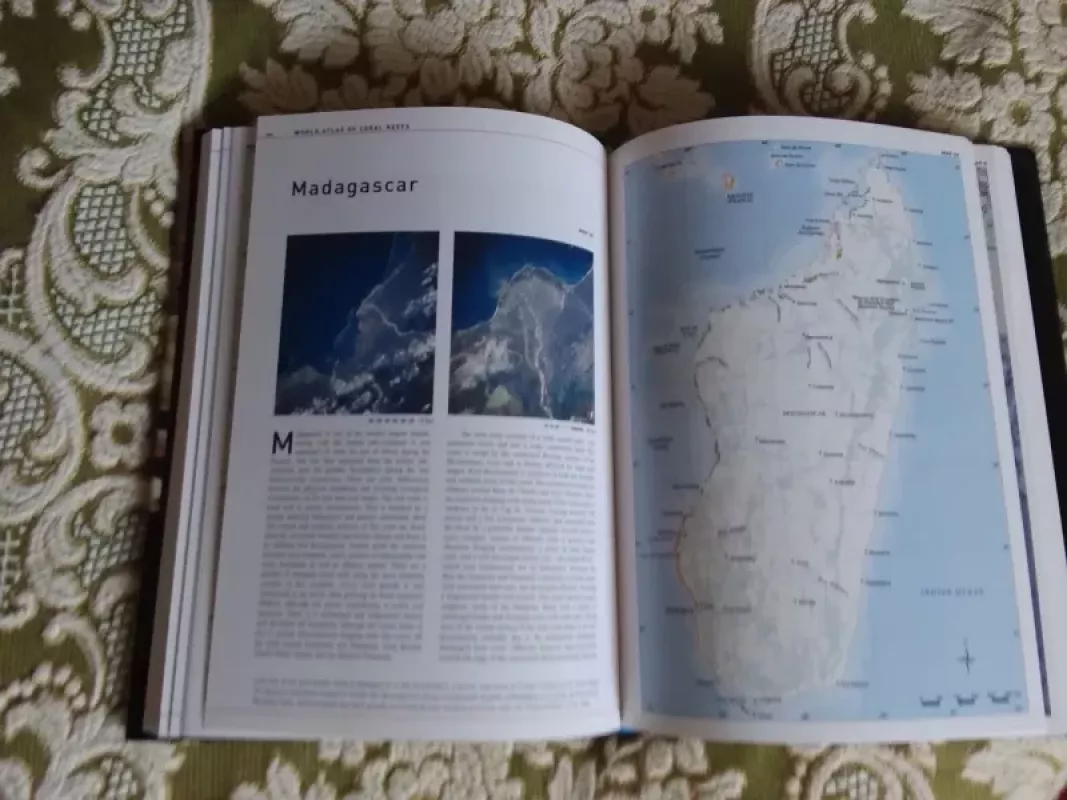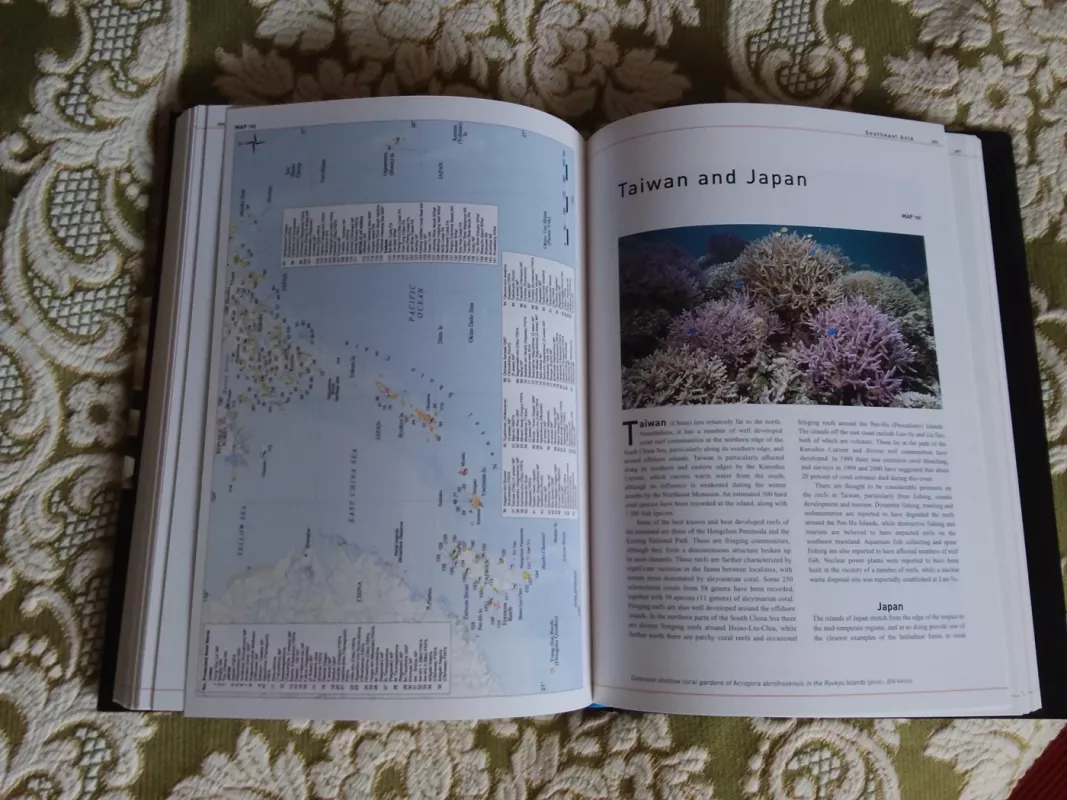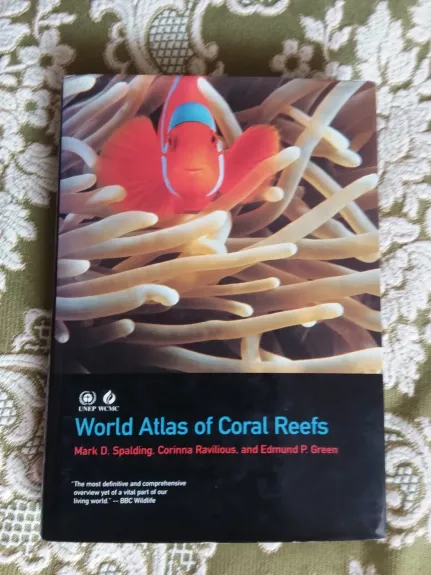



World Atlas of Coral Reefs
Coral reefs are one of the most biologically diverse habitats in the world, host to an extraordinary variety of marine plants and animals. They are also one of the world's most fragile and endangered ecosystems. The growth of mass tourism, combined with the boom in popularity of scuba diving, has brought these spectacular ecosystems to public attention across the planet.
Coral reefs provide essential fish habitat, support endangered and threatened species, and harbor protected marine mammals and turtles. They are a significant source of food, provide income and employment through tourism and marine recreation, and offer countless other benefits to humans, including supplying compounds for pharmaceuticals. Yet coral reefs around the world are rapidly being degraded by a number of human activities, such as overfishing, coastal development, and the introduction of sewage, fertilizer, and sediment.
World Atlas of Coral Reefs provides the first detailed and definitive account of the current state of our planet's coral reefs. With its wealth of authoritative and up-to-date information, the finest maps available, and detailed descriptive texts and images by leading experts, this full-color volume will be a critical resource for anyone interested in these vital environments.













